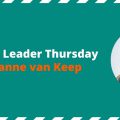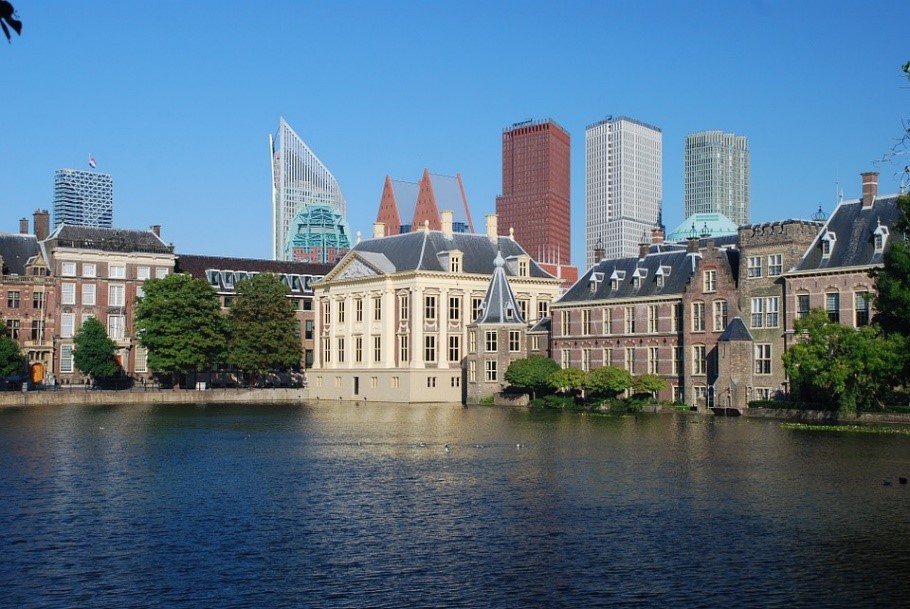
Thoughtleader Thursday – Dirk Tuip about esports: 'I expect esports to become an Olympic sport soon'
In the interview series 'Thought Leader Thursday' we speak to an expert in the field of a specific issue every Thursday. This time we speak with Dirk Tuip van H20 Esports Campus Amsterdam. We spoke to him about the impact of the corona crisis on the image of esports, building a community and how H20 wants to develop into the Papendal of esports.
What were the expectations regarding your issue before the corona crisis started?
The potential of esports - playing a video game professionally - is enormous, but In the Netherlands it is still in its infancy. Many people do not know what it means, let alone be able to identify the positive sides of playing video games (professionally) or make the link with the educational possibilities. Gaming often still has a negative connotation for older generations, while there are countless parallels can be seen with 'normal' sport.
This year was - and still is - about taking new steps to further professionalize the sector and grow the esports community. We have opened the first esports campus in the Netherlands, the H20 Esports Campus Amsterdam. In there located the Rabo Esports Stadium, the first permanent location where esports competitions are organized and broadcast.
We are very proud of this, because the project has already been in preparation for about five years. From setting up collaborations with, for example, the Media College in Amsterdam to making the building technically ready. For example, when we moved into the building we had four sockets at our disposal. As a professional esports player you cannot afford for the image to freeze for a while.
The campus covers a space of 10,000 m2 in which we bring recreational sports (gaming), top sports (esports) and creative tech (education and entrepreneurs) together. Our goal is to become the Papendal of Dutch esports, where we offer complete guidance to the talents. We think beyond just training hours and the professional career. We are also there to introduce children to the tech industry and inspire them to pursue a social career in that sector. For example, educational tech companies are also located on the campus that teach young people about new technologies. We are explicitly committed to training and education. In our view, gamers, esports players and influencers are the developers of the future.
After the successful opening, which was attended by Prince Constantijn, among others, the agenda quickly filled with events. For example, we would organize the Zwift World Championships, various company events were planned, children's parties, etc.
What happened to the issue during the crisis?
Let me zoom out first. Many people have seen esports on the news, but describing what it entails is more difficult. Gaming, the recreational playing of video games, still has a negative aftertaste for many older generations. That is now slowly changing. More and more scientific studies are appearing that show that children learn new skills while playing. And gaming is - especially during a lockdown - a safe way to get together and do things together. In this sense, the subject is developing in a positive way. Game producers, for example, have also achieved extra high turnover because many people have started gaming (more).
When I look at H20 it is very ambiguous. We hadn't even opened yet when the first lockdown was announced, which meant we had to close completely. We used that time to find new partners and tell interested parties more about the concept. We have also developed hybrid events, where we meet on campus with very small groups, and the event is broadcast online. We have therefore been able to maintain our roadmap reasonably well, except that we cannot use our main stage due to the applicable restrictions. We therefore focus more on recreational sports, where fewer restrictions apply. Children can still visit in small groups.
What is the current status of the issue?
You can also describe this phase as coming of age, with all the associated growing pains that we previously saw with tech companies. We do notice that more organizations, such as the national government, municipalities and the IOC, have an increasing interest in gaming and esports. They are now looking at how esports fit within current policy, subsidies, legislation, etc.
Esports and gaming to stay grow, but in In the Netherlands, we have identified a number of barriers that we must overcome together. The image of gaming and the ignorance of older generations must be improved first. Research, great collaborations, success stories and own experiences help to change that image, which many parties are already working on. Last summer we organized an 'esports experience tour' for families. Parents and children get a complete experience there, from gaming together to experiencing virtual reality, under the guidance of professionals. You sees understanding and enjoyment by all parties increases by the minute. The children - and future employers - are now realizing that good gamers also have skills that they can use for a tech career. Compare the weather with 'normal' sport. Good footballers, hockey players and tennis players are also more likely to choose a course such as the ALO, the Cios or Sports and Exercise. A good Minecraft player might also have a talent for programming.
What are you going to do with the issue in the near future?
We want to further professionalize esports, so that talented children can make the step to top sports. I expect that esports will become an Olympic sport, before then we must take the necessary steps to prepare the Netherlands for this. For example, we have a good amateur sports structure, with associations and sports clubs. This is still lacking in esports. The individual guidance of athletes must be improved do we want to work of certification for esports trainers. And there is still room for improvement in terms of facilities, so we also want to expand our current campus with housing. At a recreational level, it is important that we change the image of gaming. We need to show that the skills you gain from gaming are useful for your professional career. Of learning a foreign language (English, but also programming) to learning to work together. Parents also see that the campus helps them make friends. As soon as the corona measures are behind us, we can show this to many more parents
To get there, we look for collaborations in the broadest sense. This is an industry you want to be involved in, especially in combination with the tech aspect. After all, tech is also a growth market. We would like to deliver talents to society on an assembly line. To get more people enthusiastic about it, you have to show it to them. The talents we already have are impressed by our facilities. In fact, they should soon hang on the wall here as alumni. I will be very proud when they later say about us 'That's where it started.'



